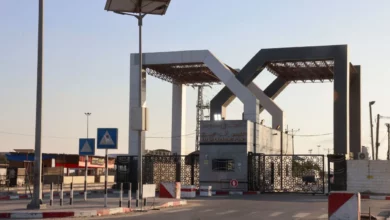
CAIRO, Nov 12 (MENA) – President Abdel Fattah al-Sisi has approved the issuance of the new Criminal Procedure Code, following the House of Representatives’ approval during its October 16 session of the amendments addressing the points previously objected to by the president.
The revised provisions strengthen guarantees protecting public rights and freedoms, address practical considerations, ensure clarity and precision in legal drafting, and prevent misinterpretation or inconsistencies in implementation.
Key amendments include enforcing the new law starting from the beginning of the next judicial year on October 1, 2026, to allow judges, prosecutors, law enforcement officers, and lawyers sufficient time to familiarize themselves with the new provisions, and to enable courts to establish the digital notification centers stipulated by the law.
The law reinforces constitutional protections for private residences, clarifying exceptional cases in which entry is permissible, such as emergencies involving distress calls, fire, or flooding.
It also strengthens defendants’ rights during interrogation, particularly for those held in reform or detention centers, by limiting detention orders to specific cases and durations, placing them under judicial review, and allowing defendants to appeal such orders.
The law expands the alternatives to pretrial detention from three to seven options, giving investigators broader discretion to avoid detention except as a last resort.
Newly introduced alternatives include travel restrictions within designated areas, bans on contacting certain individuals, temporary prohibitions on firearm possession, and the use of electronic monitoring technology.
It also adopts a recommendation by the Permanent Supreme Committee for Human Rights at the Foreign Ministry to require periodic review, every three months, of pretrial detention cases by the Public Prosecutor, rather than a one-time review.
Additionally, the law maintains traditional notification procedures alongside digital methods to ensure legal deadlines are met, and enhances protections for defendants tried in absentia for felonies by mandating a one-time adjournment to allow their attendance and defense.
These legislative amendments represent a significant step forward in safeguarding human rights and personal freedoms, reducing reliance on pretrial detention, expediting judicial proceedings, and ensuring fair trial guarantees. (MENA)




